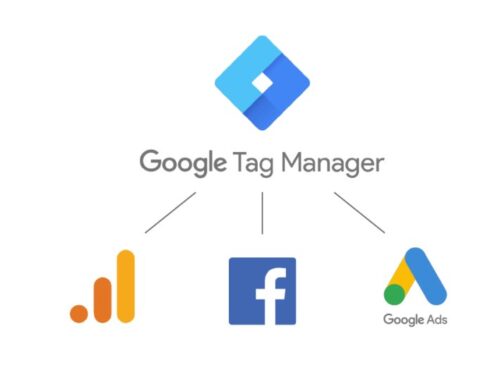
Rise of eCommerce Platforms
Author : Hardeep Singh
June 7, 2025
Rise of eCommerce Platforms in 2021
If you are hoping to get more traction for your eCommerce brand, and drive more traffic and convert all that traffic into buying customers, then it is important to know about the latest trends that are shaping the industry.
The epidemic caused changes in many verticals, and that momentum is expected to continue in some capacity as we move through 2021 and beyond.
Here are 10 e-commerce trends to be aware of in 2021:
- Customers will shop at the marketplace instead of the e-commerce store
- Online purchase will not be limited to B2C products
- Self-service platforms will continue to grow in popularity
- Shoppable Video Advertising on Social Media
- Selling Omnichannel would be ideal
- Analytics will flourish
- Influencers will become brand partners
- AI is less artificial and more beneficial
- Privatization would go beyond shopping to form a bond
- Green Consumerism Will Grow in Popularity
- Customers will shop at the marketplace instead of the e-commerce store
Businesses that did not have a website before 2020 have suddenly gone online. However, consumer behavior is in favor of convenience. Many new eCommerce businesses lack the backend infrastructure to cope with the increased traffic and shipping requirements currently being imposed on them.
On the other hand, companies like Amazon and Walmart have the necessary experience and infrastructure to satisfy today’s customers. Other niche marketplaces such as AT continue to grow to accommodate new digital entrepreneurs.
- Online purchase will not be limited to B2C products
Disruption in 2020 was not the only topic of discussion as businesses accelerated their digital transformation efforts amid global changes. With no other options, consumers turned to eCommerce to get everything they needed for their daily lives.
Suddenly food, fashion, and gadgets were not the only things people could buy online and get to their doorstep. Groceries, furniture, and even vehicles have joined the list of parts. These changes in buying habits can be a bit slow as people are able to return to their regular routines, but they will certainly not stop.
The shift of eCommerce from a few people to a dependent rather than a simple feature would mean that the brand needed to tailor its strategies accordingly.
- Self-service platforms will continue to grow in popularity
Starting online was once a long and laborious process. But, 2020 has changed the narrative and shown us how fast small businesses and solopreneurs can digitalize their businesses.
- Shoppable Video Advertising on Social Media
Consumption of social media will not reduce in 2021 and brands will start advertising differently on channels such as Tik-Tok and Instagram. Zoomers spend hours scrolling Tik-Tok and Instagram feeds. Merchants are on the seventh sky. Video is the perfect channel to reach an eager young target audience. Gen-Z can help make decisions literally from their social media feeds Is, and videos let them shop directly.
The brand has already started receiving a lot of value from advertising in stories on apps like Instagram and Snapchat, so this is the next step in the development of social media selling.
- Selling Omnichannel would be ideal
Selling omnichannel will become the new normal. We are really moving into this space with public cloud platforms with tools like Amazon Personalize and Pinpoint. It could possibly be disruptive in an interesting way, but the bottom line is omnichannel selling. And those types of capabilities will be cheaper and more accessible. 2021 will be the year that some steps will be taken that some are doing the most.
Amazon Pinpoint and Amazon Personalize are two products from Amazon Web Services (AWS) that enable brands to improve customer experience and communicate with customers across multiple channels.
- Analytics will flourish
In the eCommerce world, customer data will continue to receive value. Many brands focus on basic, but important metrics provided to them, such as click-through rates on specific campaigns and conversion metrics that indicate where the bulk of traffic and sales are coming from. However, as we roll into 2021, a lot of data capabilities will be exposed and become more granular.
- Influencers will become brand partners
Most e-commerce brands have tapped into influencers over the years to take advantage of their vast audience. According to the Influencer Marketing Hub, the affected marketing industry was expected to reach $ 9.7B in 2020.
Many eCommerce brands have a content problem. So, they are unable to create enough content on a scale to support their marketing efforts. In 2021, a trend we see brands influencing creators to create content in exchange for the content creation process to support the process. A content agency. We will also look at adding paid media ads to this content so that they can control reach and viewership.
- AI is less artificial and more beneficial in 2021
Many of the benefits of artificial intelligence in previous years were a bit early to be realized in eCommerce, but this would change dramatically in 2021.
As concepts such as machine learning and chatbots become more mainstream, brands can leverage AI to achieve real business impact.
For example, AI can already be used to make recommendations for customers who may buy next based on their history. Brands can also leverage concepts such as voice search to put their products in front of customers. AI will also assist on the backend and make inventory predictions.
- Privatization would go beyond shopping to form a bond
Customers love it when their experience suits their unique needs. Smarter Headquarters has learned that 72% of customers engage only with personal messaging services.
While personalization was initially limited to email marketing, customer expectations and technology capabilities have changed which is possible.
- Green Consumerism Will Grow in Popularity
Sustainability is no longer reserved for some brands. In fact, changes in the economic, cultural, and social landscape in many countries around the world have shifted the focus towards creating products that protect the environment.
Brands like Amazon have taken a pledge towards sustainability, and other eCommerce brands are likely to follow suit as humans find ways to reduce waste and conserve the Earth for future generations.












